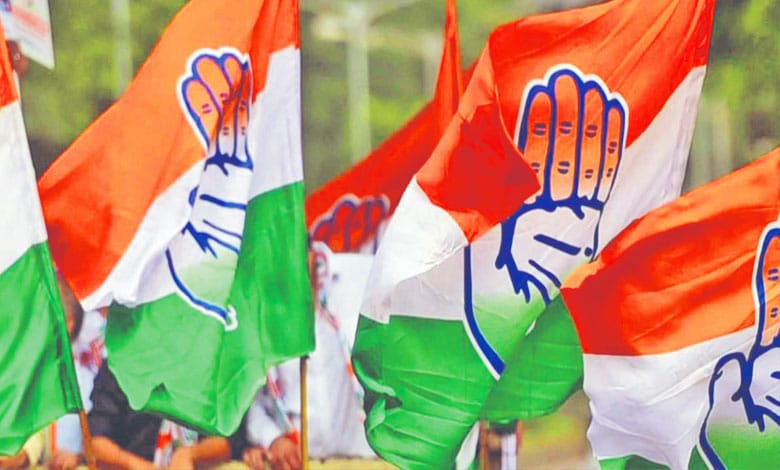Congress to Restructure Kerala Unit: Key Developments and Potential Leadership Changes
"Congress plans a major restructuring of its Kerala unit to expand its base and rejuvenate leadership. Key developments include potential candidates for president and strategies to counter BJP’s growing influence in the state."

In a move aimed at expanding its base and revitalizing its presence in Kerala, the Congress Party is actively considering a major reshuffle of its state leadership.
The decision comes as the party grapples with the changing political landscape in the state, where shifting voter dynamics are influencing electoral outcomes.
Table of Contents
Deepa Das Munshi, AICC General Secretary in charge of Kerala, has reportedly submitted her recommendations for the reshuffle after holding discussions within the party.
This restructuring is seen as crucial for the party’s prospects in the state, especially with the rise of the BJP and the solidified position of the CPI-M-led Left Front.
Leadership Transition in Kerala Congress
K. Sudhakaran, the current president of the Kerala unit and a prominent member of the Kannur Lok Sabha, has expressed his openness to the high command’s decision regarding the reshuffle.
Known for his aggressive political stance, particularly in his home turf of Kannur, Sudhakaran has maintained that he does not give undue importance to positions like party president or Chief Minister. Instead, his focus has always been on challenging the CPI-M and its policies.
His willingness to step aside if required reflects the party’s readiness for change, even as it faces the difficult task of re-engaging with a younger, more dynamic electorate.
Challenges in the Kerala Political Landscape
The Kerala Congress party has seen its support base shrink over the years, with traditional voters shifting their allegiances to other parties.
The challenge for the next leader will be to rejuvenate the party by providing vibrant leadership that resonates with the grassroots and appeals to a younger generation of voters.
Sources within the Congress have suggested that the new leader should not only be young and non-controversial but also mindful of the changing demographics of Kerala politics.
It is speculated that the next party president could come from a background that reflects the state’s diverse social fabric, potentially hailing from one of the key communities such as the Ezhava or Christian minorities.
The Importance of Caste, Creed, and Community in Leadership Selection
As is customary in Kerala’s political sphere, caste and community considerations are likely to play a pivotal role in the selection of the new Congress president.
While traditional dynamics often see leaders hailing from specific castes or communities, the modern approach seems to focus on selecting a leader who can unite the various factions within the party while appealing to a broad base of voters.
Given the shifting allegiances of Kerala’s electorate, particularly among Hindu voters, there is an increasing expectation that the Congress will focus on appointing a leader who can bridge the gap between the party’s traditional vote banks and the emerging political preferences of the electorate.
Political Dynamics: The BJP’s Growing Influence
One of the critical factors influencing the restructuring of Kerala’s Congress unit is the rising influence of the Bharatiya Janata Party (BJP) in the state.
In the 2021 Kerala Assembly elections, the BJP secured around 13% of the vote share, a significant base that could prove problematic for Congress in future contests.
In recent months, a shift in voter alignment, particularly among the Hindu Ezhava community, has seen a notable move towards the BJP, especially in central Kerala.
This shift has prompted the Congress to rethink its strategies and leadership choices to counter the BJP’s growing influence in the state.
With Kerala’s politics being deeply polarized between the CPI-M-led Left Front and the Congress-led UDF alliance, the addition of BJP votes could further fragment the opposition, making it imperative for Congress to choose a leader capable of not only revitalizing its base but also effectively countering the BJP’s appeal to Hindu voters.
Also Read | Delhi Congress Announces Major Welfare Schemes Ahead of Assembly Elections
Potential Candidates for the Role of Congress President
As discussions about the reshuffling of leadership intensify, several names are being floated as potential candidates for the post of Kerala Congress president.
Among the front-runners are Congress MPs Adoor Prakash, Anto Antony, and Benny Behanan, who have strong political profiles and a significant following in their respective regions.
Additionally, younger leaders such as two-time legislator Rogi M. John and Sunny Joseph, a close aide to Sudhakaran, are also being considered.
These candidates represent a mix of experience and youthful energy, which is seen as essential for revitalizing the party’s fortunes.
Another significant name that has emerged in the conversation is that of Kodikunnil Suresh, a veteran Congress MP from the Scheduled Castes (SC) community. His candidacy could appeal to the state’s marginalized communities, providing the party with a leader who could strengthen its position among Dalit voters.
The Minority Factor: A Key Consideration in Leadership Selection
In the context of Kerala’s complex social and political fabric, minority communities—especially Christians and Muslims—hold significant sway in electoral outcomes.
The Christian community, which comprises around 17-18% of Kerala’s population, has traditionally been a key support base for the Congress.
With the CPI-M’s apparent shift towards Hindu consolidation in a bid to counter the BJP, the Congress is expected to focus on minority community representation when selecting its next leader.
This strategic focus could help the party maintain its traditional vote banks while also appealing to the growing Hindu electorate.
Given these dynamics, several Christian leaders are being touted as potential contenders for the Congress presidency.
These include veteran leaders who could bring credibility and experience to the role, ensuring that the party remains competitive in a changing political landscape.
